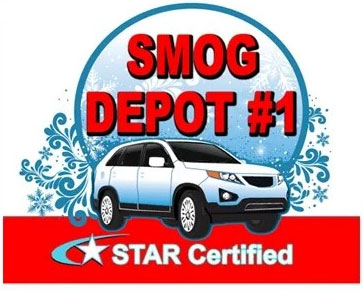Top 10 Common Reasons Vehicles Fail Smog Tests
Get ready to hit the brakes on costly smog test failures with our comprehensive list of the common reasons vehicles fail smog tests. From faulty oxygen sensors to outdated catalytic converters, this guide will delve into the most frequently encountered issues that can leave your car stuck in the emissions lane.
Don’t let a failed smog test put a dent in your wallet. Join us as we uncover the root causes and solutions for why your vehicle may not be passing. This list will provide valuable insights and tips from industry experts.
So buckle up and get ready to take the first step towards reducing your vehicle’s emissions and ensuring a smooth ride towards a passing smog test.
Common Reasons Vehicles Fail Smog Tests
There are a number of common reasons why vehicles fail smog tests, and understanding these can help car owners prepare for their next emissions test. One of the top reasons is a malfunctioning oxygen sensor, which is responsible for measuring the amount of fuel in the exhaust. A faulty gas cap, worn spark plugs, and dirty air filters can also result in a failed smog test.
Other common culprits include a malfunctioning catalytic converter, damaged or leaking hoses, and outdated engine components. Poorly tuned engines, excess oil consumption, and even driving habits can also contribute to a failed smog test. By addressing these common issues, car owners can help reduce emissions and pass their smog tests with ease.
Faulty Oxygen Sensor
A faulty oxygen sensor is a critical component in your vehicle’s emission control system. This sensor is responsible for monitoring the oxygen content in the exhaust gases, allowing the engine control unit to adjust the air-fuel mixture for efficient combustion. When the oxygen sensor fails, it can lead to a rich or lean fuel mixture, resulting in increased emissions and reduced fuel efficiency.
If your vehicle’s Check Engine Light is illuminated, it could indicate a faulty oxygen sensor. Ignoring this warning sign can not only lead to smog test failure but also cause long-term damage to your vehicle’s engine and catalytic converter. Timely diagnosis and replacement of a faulty oxygen sensor are essential to ensure your vehicle meets emission standards and operates at peak performance.
Regular maintenance practices, such as following the manufacturer’s recommended service schedule and using high-quality fuels, can help prolong the life of the oxygen sensor. Additionally, keeping your engine well-tuned and avoiding excessive idling can contribute to proper oxygen sensor function. By addressing issues related to faulty oxygen sensors promptly, you can improve your vehicle’s emissions, fuel efficiency, and overall driving experience.
Clogged Air Filters
Air filters are designed to prevent contaminants from entering the engine, ensuring clean air for combustion. Over time, air filters can become clogged with dirt, dust, pollen, and debris, obstructing airflow and reducing engine efficiency. A clogged air filter can disrupt the air-fuel ratio, leading to incomplete combustion and increased emissions during a smog test.
Regularly inspecting and replacing dirty air filters according to the manufacturer’s recommendations can help maintain optimal engine performance and emission control. Additionally, using high-quality air filters or considering performance air filters can enhance airflow and combustion efficiency, reducing emissions and improving fuel economy.
In regions with high levels of dust or pollution, more frequent air filter replacements may be necessary to prevent smog test failures. Monitoring your vehicle’s air filter condition and proactively addressing clogs can ensure your engine receives clean air for combustion, minimizing harmful emissions and contributing to a cleaner environment. Remember, a small maintenance step, like changing your air filter, can have a significant impact on your vehicle’s emissions performance.
Worn-out Spark Plugs
Spark plugs play a crucial role in igniting the air-fuel mixture in the engine’s cylinders, facilitating combustion, and powering your vehicle. As spark plugs wear out over time, they may develop carbon deposits, erode electrode tips, or experience electrical resistance, affecting their ability to generate sparks consistently.
Failed or deteriorated spark plugs can cause misfires, reduce engine performance, and increase emissions during a smog test. Timely inspection and replacement of worn-out spark plugs can improve combustion efficiency, fuel economy, and emission control. Choosing the right spark plug type and heat range for your vehicle can also optimize engine performance and minimize emissions output.
Maintaining a healthy ignition system, which includes spark plugs, ignition coils, and spark plug wires, is vital for emission compliance and overall vehicle reliability. By adhering to the manufacturer’s recommended spark plug replacement intervals and selecting quality spark plugs, you can enhance your vehicle’s performance, reduce emissions, and increase the likelihood of passing a smog test with ease.
Vacuum Leaks
Vacuum leaks occur when a vehicle’s vacuum system has an unintended gap or crack, allowing air to escape or enter where it shouldn’t. The vacuum system is crucial for various engine functions, including controlling the air-fuel mixture and operating components like the brake booster and EGR valve.
When there’s a vacuum leak, the engine may experience rough idling, stalling, or hesitation during acceleration. This happens because the engine receives too much air, disrupting the ideal air-fuel mixture and causing inefficient combustion. The engine control unit (ECU) may struggle to compensate for the excess air, leading to increased emissions and potential failure of emissions tests.
Common sources of vacuum leaks include cracked or disconnected hoses, faulty gaskets, and damaged intake manifold seals. Regular inspection and maintenance of the vacuum system can prevent these issues. Addressing vacuum leaks promptly can improve engine performance, fuel efficiency, and emission levels.
Ensure Your Car Passes the DMV
In conclusion, understanding the common reasons vehicles fail smog tests is crucial not only for passing the test but also for the health of the environment. By regularly maintaining our vehicles, properly fueling and driving them, and addressing any potential issues, we can reduce harmful emissions and improve overall air quality. Don’t delay; take action today! Get your vehicle checked and contribute to a cleaner, healthier world. Schedule a tune-up or check-up now and show your commitment to a greener future!
Visit our website to learn more about smog certificates.

